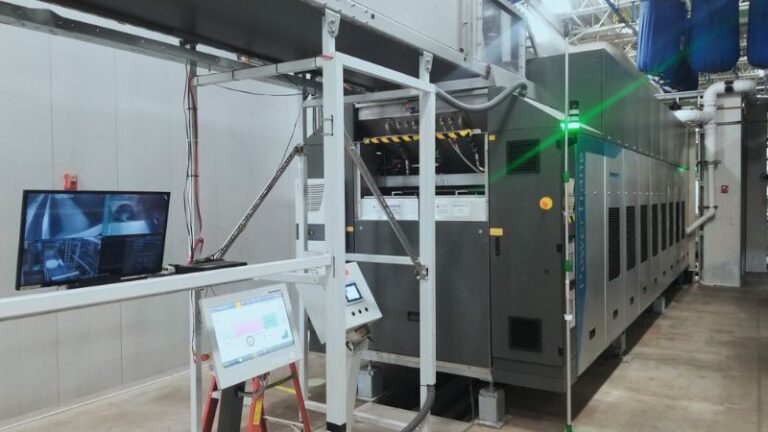In its continuing effort to conserve water and other natural resources, Intermountain Health has made an innovative upgrade of two industrial washing machines at the Intermountain Central Laundry facility in North Salt Lake, saving millions of gallons of water.
After a year of use, the new machines, which were set to be replaced, saved more than 11 million gallons of water, and those numbers are only expected to grow in the future.
Intermountain’s Central Laundry handles the cleaning of linens from 160 healthcare and hospital facilities stretching from Burley, Idaho, to Delta, Utah. Caregivers clean, fold, and deliver more than 1.3 million pounds of laundry every month.
“Not many health systems have central laundry facilities like we do, and it’s proven to be a cheaper and more efficient way to handle this vital part of healthcare,” said Laura Thurston, operations manager at Intermountain Central Laundry. “When you process millions of pounds of laundry even the slightest efficiencies can make a big difference in the number of resources used.”
A major efficiency with these new industrial machines is their ability to recycle water, which would have otherwise gone down the drain. For the final step in the cleaning process, a hydraulic press squeezes excess water out of clean laundry to reduce drying time. That water, which is already heated, is put back into the first step of the washing machine to soak the next load of soiled laundry.
Water conservation is at the forefront of Intermountain’s sustainability efforts in Utah and other Western states, which are working to find innovative ways to deal with record droughts and dwindling water levels in lakes and reservoirs.
From June of 2021 to May of 2022 the central laundry did more than 15.2 million pounds of laundry, using 29.7 million gallons of water. After the new machines were installed at the end of May 2022, those number dropped to 18.7 million gallons of water used for 15.6 million pounds of laundry during the same period.
“The best form of sustainability is not having to use resources in the first place. These upgrades will save water over the decades while they’re in service,” said Glen Garrick, sustainability manager for Intermountain Health. “Every gallon of water we don’t have to use in the process of providing care is a gallon that can stay in our waterways and benefit our communities.”


